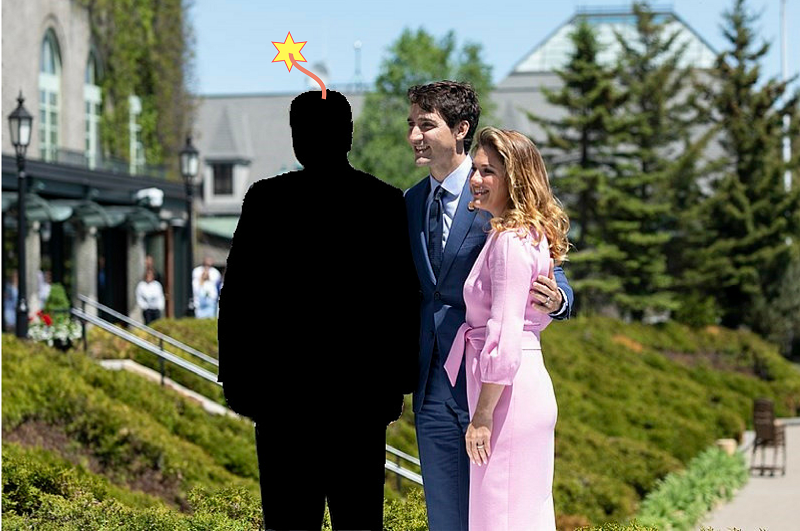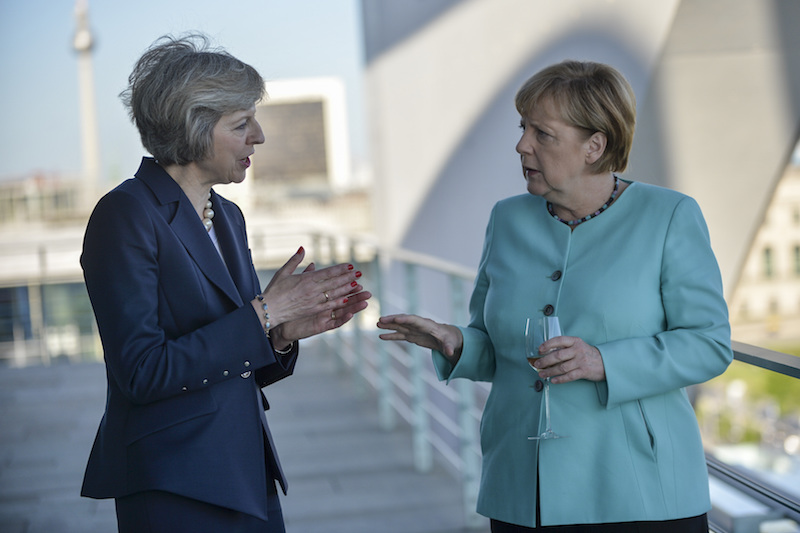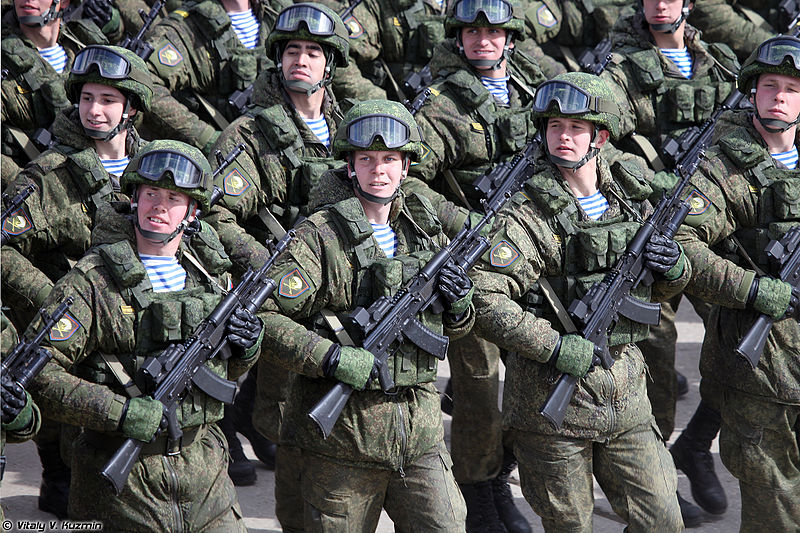American threats and implementations of tariffs have alienated the superpower further from its allies. It is in this environment that the world carefully observed the G7 Conference in Charlevoix, Quebec and witnessed the elevation of tensions between other Western leaders and the United States. NAOC Program Editors for the Canadian Armed Forces, Cyber Security and Information Warfare, Women in Security, and NATO Operations share their perspectives on what went right and what went wrong at the 2018 G7 Summit.
McCartney Lee, Program Editor: Canadian Armed Forces
Climate change was discussed (again), Trump threw a tantrum, and Canada got off pretty easy. During the recent G7, climate change and environmental issues were discussed at length against the beautiful backdrop that is Charlevoix. This was highlighted in the summit’s ending joint communiqué, which featured a new Blueprint for Healthy Oceans, Seas and Resilient Coastal Communities in combination with an ambitious Oceans Plastic Charter. These initiatives and targets are all focused on protecting our natural environment, and exist as evidence for the importance of multi-national discussion. Despite this dialogue regarding our current climate crisis being important, actions still speak louder than words.
Justin Trudeau, considered to be a leader on combating climate change, has put his entire reputation as a clean energy advocate at stake. With the purchase of the Trans Mountain pipeline in conjunction with increased oil sands production, significant consequences are inevitable for worldwide carbon pollution. The pipeline would effectively lead to a sevenfold increase in tanker traffic in the Salish Sea, harming marine life and causing irreparable damage to coastal communities. As a country that is committed to meeting Paris Agreement targets, Kinder Morgan seems a little counterproductive to those efforts. This is further complicated by the very recent change of government in Ontario, with Premier-designate Doug Ford promising to end the Green Energy Act and eliminate the Liberal Carbon Tax plan.
In the wake of Donald Trump’s recent temper tantrum, in which he imposed illegal tariffs on Canadian steel and aluminum, showed up late to the Women’s Forum, and ditched the climate change talks, little attention was paid to Canada’s climate track record at the summit. The ending press conference seemed entirely focused on Trump’s recent outbursts, with world leaders and civilians alike rallying around Trudeau as he spoke out against the United States. In essence, Canada got off pretty easy at the G7.
Amaliah Reiskind, Program Editor: Cyber Security and Information Warfare,
Though Trump was the media flypaper he always is, it’s important to not let his vitriol overshadow the good work done by world leaders and ministers in Whistler, Toronto and Charlevoix this month. The majority of participants believed in the value of economic cooperation, the importance of looking at long-term impacts, and rallying behind marginalized communities. In a time where many developed countries are dealing with protectionist populist movements it is necessary to remember that the G7 countries overall believe in the international rule-based order and the benefits of free trade. Though contentious to some, the Group still stands as a symbolic stronghold of the post-World War II idea that integrated economies means political cooperation.
A point of note was that in contrast to the last two years there wasn’t an independent declaration relating to cyber security released. Instead the issue of cyber security was briefly brought up in the security ministers’ communiqué. This paragraph briefly discussed the importance of shared capacity building and the need for international law to regulate cyber practices. Commitment to the Lucca Declaration and Ise-Shima endorsement were also reiterated. Artificial Intelligence was given its own release statement; which was sensible, as the dialogue on regulating the direction of development has been heating up.
Again though, the G7 isn’t about formulating a comprehensive security strategy. The Group is about reaffirming commitment to common ideals. In which case kudos to Trudeau for highlighting climate change and women’s rights. These matters are sorely pressing but often sidelined, especially when America has the stage. The $3.8 billion pledged for female education in fractured states was one of the few concrete commitments from the summit and is most definitely worthwhile.
While the join-communiqué was relatively innocuous the importance of it in this political climate shouldn’t be underestimated. Canada used its, now slightly louder, measured voice to reaffirm its values on the global stage. The idea of a “G6+1” pushed by Germany and France shows that countries are no longer prepared to have the US set the tone through bullying tactics.
Michelle Verbeek, Program Editor: Women in Security
Historically, policy agreements made at the G7’s annual summit have had global impact, often trickling down to non-G7 countries worldwide. But with the U.S.’s retreat from global leadership and President Donald Trump’s adversity to rules based international order, the focus of the 2018 G7 summit in Quebec was inevitably shifted. As last week’s meeting loomed closer, it became clear that Canada’s G7 gender equality agenda was going to be derailed by debate over U.S. tariffs.
As Canada took on the position of 2018 G7 Presidency in January, Prime Minister Justin Trudeau signaled his intent to show world leaders what feminist policy would look like on a global stage. Trudeau commissioned the Gender Equality Advisory Council which set comprehensive and ambitious recommendations to be transferred in an out of all discussions at the summit.
While the council was successful in securing a $3.8 billion CAD investment in women’s education, it was ultimately severely overshadowed within the media by talks of U.S. tariffs and Trump’s impending meeting with North Korean leader Kim Jong Un. As a global superpower, the U.S.’s contributions and participation at the G7 summit are crucial. But as we saw last week, it was precarious at best. Trump made it abundantly clear through his words and actions that he was in attendance not to be friendly or engaged, but rather to boost his self-image and show his loyal far-right fanbase that he outright refused to be friendly and diplomatic with other global leaders. Once behind the safety of his phone, he implored his favourite foreign policy tactic of tweeting inappropriately about other heads of state.
The media frenzy that followed Trump reinforced his inability to compartmentalize foreign relations issues, and ultimately undermined any tangible progress that the G7 wanted to work towards. What we are left with is a slew of analyses on Trump’s bad behaviour, and gender equality issues are again left on the back-burner.
Buzz Lanthier-Rogers, Program Editor: NATO Operations
I think Trump’s hissy fit at the end of the G7 could be a good thing. Hear me out here.
The tariffs imposed by the U.S. will hurt Canadians; that much is true. The relationship between the U.S and its partners has and will likely continue to suffer. The world order that has been meticulously crafted over the past decades—founded on rules and commitments—is at risk. But the U.S. is the first member of that inner circle to truly test the strength of that order, and this might just make it stronger in the long run.
The international order is a sports car that was never crash-tested. When Russia annexed Crimea, it was (rightly) booted from the G8. Now the G7 is faced with an ally gone rogue, and though they might be prepared to make this a G6, it will be better for everyone if they can persuade the U.S. to change its ways without expelling their most important partner.
The international order needs to learn how to deal with a partner like Trump (and his claque of hand-puppets that think they’re people) in order to endure. After all, what’s happening in the U.S. could be repeated anywhere, ad nauseam, for the rest of history. Other allies may destabilize the order, and another red, inflatable balloon man that just learned how to walk away from its daily watch by the roadside gas station may wander into a meeting of world leaders.
Photo:President Trump’s Trip to the G7 Summit (2018), by Shealah Craighead via Flickr. Public Domain.
Disclaimer: Any views or opinions expressed in articles are solely those of the authors and do not necessarily represent the views of the NATO Association of Canada.




